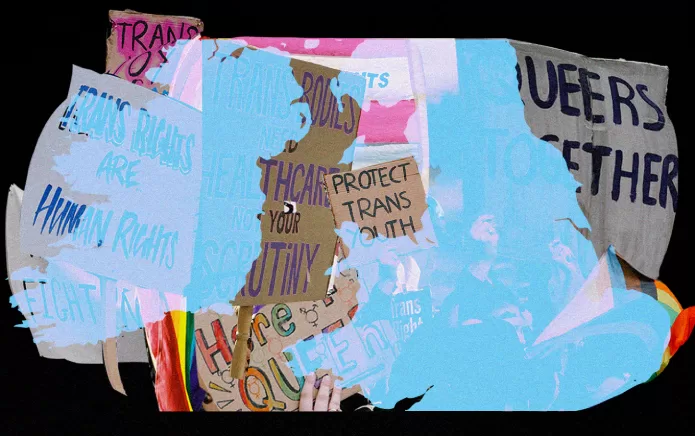In fact, it was just last year that Lee Anderson, who was at the time the Deputy Chairman of the Conservative Party, went as far as to say that it will “probably” be fought on “a mix of culture wars and ‘trans debate’” – meaning that topics like self-identification and gender-affirming care will be thrust into the spotlight.
Since then, issues affecting trans and non-binary people have been addressed in Parliament several times, though never with members of the community present.
Most recently, this was seen at the ‘conversion therapy’ ban debate, which descended into anti-trans rhetoric not related to the real issue at hand.
But is this type of discourse what potential voters are really considering as they decide who to vote for? YouGov polling shows that, despite Westminster’s fixation on trans and non-binary issues, two thirds of Britons pay little or no attention to such discourse around them.
READ MORE: What do the UK’s new voter ID laws mean for trans and non-binary people?
Just eight per cent said they pay “a lot” of attention to this type of toxic debate, with half actually believing that discrimination against the trans community is either a “major” or at least “significant” problem in Britain today.
With that in mind, GAY TIMES took to the streets of London to ask the general public if they felt politicians were focusing on the issues that truly matter to them.
“I feel that every politician, personally, is very self-serving,” said someone on Old Compton Street, the hub of LGBTQIA+ nightlife in the UK’s capital.
“I believe that there is not enough representation for intersectionality, diversity [and] queer rights.
“There is not enough being done about homophobia, sexism, Islamophobia and xenophobia and that, if anything, the current politicians are capitalising on these issues in trying economic circumstances to try and win votes.”
